#african americans rights
Explore tagged Tumblr posts
Text
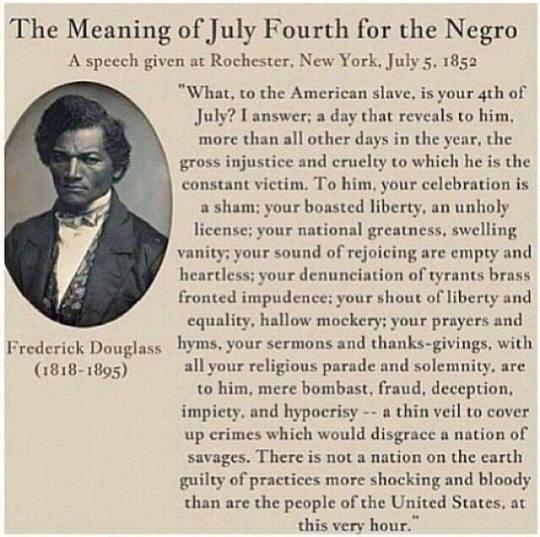
#african americans rights#african american history#underground railroad#slavery#civil war#black lives matter#civil rights movement#the narrative of the live of frederick douglass#frederick douglass#fourth of july
703 notes
·
View notes
Text
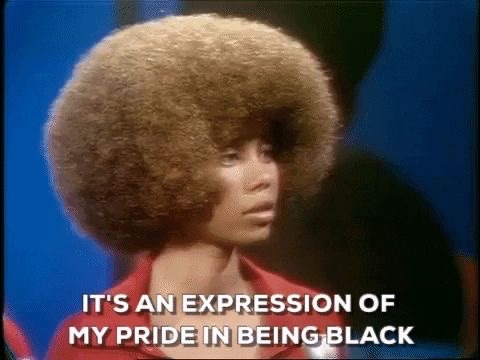



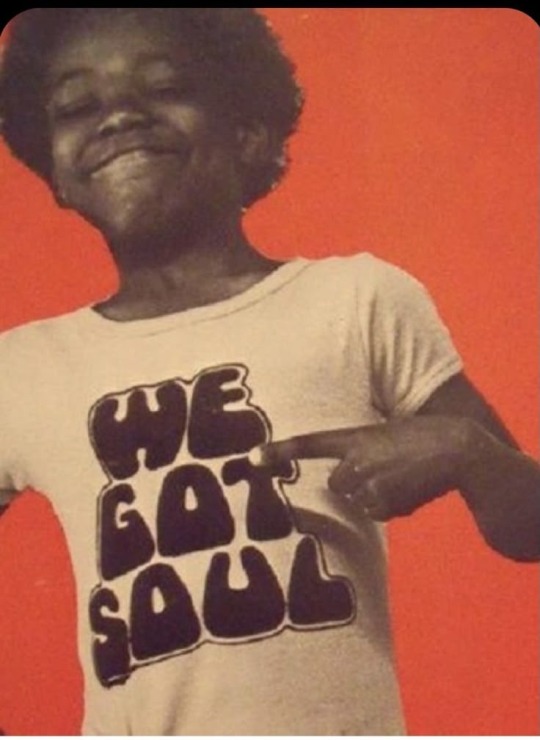

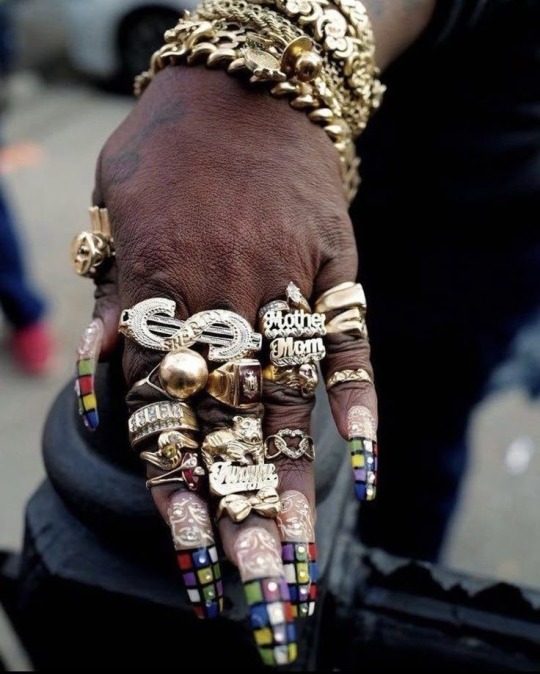



Our story is forever
Black is history
History is Black ✊🏿
#black girl aesthetic#black girl blogger#black girls of tumblr#black girl magic#black girl joy#black men#black power#black history#black history month#black people have rights#black people are the blueprint#black people#blues came from black culture#black culture#black caribbean#black lives matter#black excellence#90s culture#80s culture#black boy joy#black blogger#jet black#black and proud#black is better#black girl runs this blog#black people are luxury#black is gold#black is divine#soulaan#african american
624 notes
·
View notes
Text
Leftist antisemitism is a symptom - American Jews and the Illiberal Left
TLDR: I think we would be wise to stop regarding leftist antisemitism only in its own context and habitually recognize it is a part of a larger issue, the rise of the illiberal left.
Why are Jews are the most reliable supporters of Liberal policies and politicians in modern American history?
Haviv Rettig Gur seems to suggest that Jews in the US, recognizing that Liberal values resulted in their (imperfect but historic) emancipation in the US, became perhaps the most Liberal people ever. They understood that US Liberal values were what made Jews relatively safe in the US, and offered them opportunities which had been denied to them everywhere else.
When previously did a head of state speak to Jews the way George Washington did?
Gur suggests that this is why American Jews have historically been so invested in the struggle of black folks in the US. When I say invested, I'm talking about facts like these:
- Henry Moscowitz was one of the founders of the NAACP.
- Kivie Kaplan, a vice-chairman of the Union of American Hebrew Congregations (now called the Union for Reform Judaism), served as the national president of the NAACP from 1966 to 1975.
- From 1910 to 1940, more than 2,000 primary and secondary schools and 20 Black colleges (including Howard, Dillard and Fisk universities) were established in whole or in part by contributions from Jewish philanthropist Julius Rosenwald. At the height of the so-called "Rosenwald schools," nearly 40 percent of Black people in the south were educated at one of these institutions.
- Jews made up half of the young people who participated in the Mississippi Freedom Summer of 1964.
- Leaders of the Reform Movement were arrested with Rev. Dr. Martin Luther King, Jr. in St. Augustine, Florida in 1964 after a challenge to racial segregation in public accommodations.
- Rabbi Abraham Joshua Heschel marched arm-in-arm with Dr. King in his 1965 March on Selma.
- The Civil Rights Act of 1964 and the Voting Rights Act of 1965 were drafted in the conference room of Religious Action Center of Reform Judaism, under the aegis of the Leadership Conference, which for decades was located in the RAC's building.
When I was a child and asked my mother why Jews seemed overwhelmingly to be Democrats, I was told "because of FDR and the Civil Rights movement." That's not wrong, in Gur's framing, but perhaps a more shallow response than the question deserves.
In Gur's framing, US Jews realized that the promises of Liberalism, over and over, no matter how much they delivered for other peoples, did not deliver for black Americans.
Gur suggests that US Jews worked to see that change for their black co-citizens because if American Liberalism didn't deliver for black Americans what it appeared to promise to all Americans, the sense of safety, security, and belonging which Jews felt in the US was an illusion.
US Jews believed that we had common cause with non-Jewish American Liberals. We thought non-Jewish liberals believed what we believed about universal civil rights, pluralism, enlightenment values and enlightenment reason. When Jews saw the "In this House We Believe" signs on our neighbors' lawns, We felt comforted because those beliefs are also our beliefs.
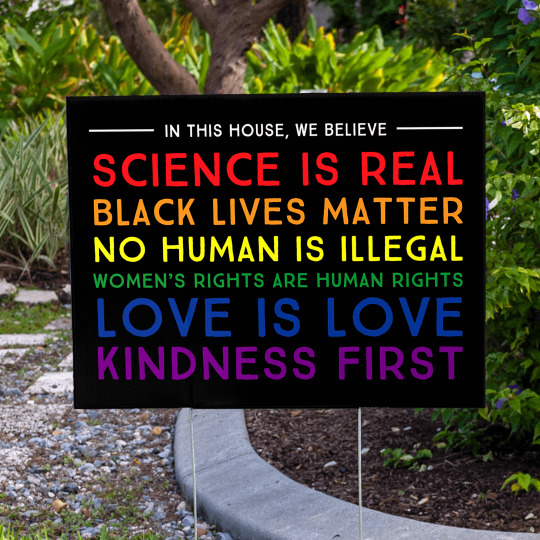
We thought, for instance, that our non-Jewish friends agreed that Liberal democracies were better for human rights than any form of government in the history of human societies. We thought they agreed that religious, racial, and ethnic intolerance were social ills which needed to be fought with information. We thought they valued data, reason, and reliable sources.
Since 10/7/23, we've been learning that we were mistaken. We've seen gentiles who we thought shared our values seem to discard those values.
We saw college educated friends share antisemitic (and alarmingly familiar) conspiracy theories about Israeli puppetry of US politics and the return of Nazi and Soviet antisemitic slogans/images.
We've seen highly educated "Liberals" preach ahistoric nonsense denying that the Jewish people are from the Levant and willfully ignoring the huge swaths of historical fact which don't support their favored narrative.
We've seen friends rage against "globalists" and "Zionists," when what they mean is 'Jews'.
We've seen people who we thought were allies against all forms of racism justify their racism towards Jews as righteous through specious reasoning like 'I don't hate Jews, just the 97% of Jews who believe that Jews should have self-determination in their homeland.'
We've been told that we cannot ask them to temper their use of antisemitic tropes, because doing so "weaponizes" concerns about antisemitism to obstruct them from their righteous crusade against the most evil nation on earth...which happens to be the only Jewish nation.
Despite this, about 80% of Jewish voters voted for Harris over Trump.
I think US Jews will continue to be Liberals, because Liberal values are dear to us and aligned with our values as Jews, as a historically oppressed minority, and as Americans who see more clearly than some others the gap between the promise of American liberalism and its long-delayed universal delivery.
The problem, I think, is in how many of our former friends simply aren't Liberals any longer.
I think Jews in the US need to spend a good deal more time scrutinizing the illiberal left.
Nine days after the attacks of 10/7/23, Jonathan Chait wrote:
Writers like Michelle Goldberg, Julia Ioffe, and my colleague Eric Levitz, all of whom rank among the writers I most admire, have written anguished columns about the alienation of Jewish progressives from the far left. I think all their points are totally correct. But I find the frame of their response too narrow. They are treating apologias for Hamas as a factually or logically flawed application of left-wing ideals. I believe, to the contrary, that Hamas defenders are applying their own principles correctly. The problem is the principles themselves.
...
Liberals believe political rights are universal. Basic principles like democracy, free speech, and human rights apply equally to all people, without regard to the content of their political values. (This of course very much includes Palestinians, who deserve the same rights as Jews or any other people, and whose humanity is habitually ignored by Israeli conservatives and their American allies.) A liberal would abhor the use of political violence or repression, however evil the targets.
...
The illiberal left believes treating everybody equally, when the power is so unequal, merely serves to maintain existing structures of power. It follows from their critique that the legitimacy of a tactic can only be assessed with reference to whether it is being used by the oppressor or the oppressed. Is it okay for, say, a mob of protesters to shout down a lecture? Liberals would say no. Illiberal leftists would need to know who was the speaker and who was the mob before they could answer.
...
One observation I’ve shared with many analysts well to my left is that the debate over this illiberalism and the social norms it has spawned — demands for deference in the name of allyship, describing opposing ideas as a form of harm, and so on — has tracked an older debate within the left over communism. Communism provided real-world evidence of how an ideology that denies political rights to anybody deemed to be the oppressor laid the theoretical groundwork for repression and murder.
There have been conscious echoes of this old divide in the current dispute over Hamas. The left-wing historian Gabriel Winant has a column in Dissent urging progressives not to mourn dead Israeli civilians because that sentiment will be used to advance the Zionist project. Winant sounds eerily like an old communist fellow traveler explaining that the murders of the kulaks or the Hungarian nationalists are the necessary price of defending the revolution. “The impulse, repeatedly called ‘humane’ over the past week, to find peace by acknowledging equally the losses on all sides rests on a fantasy that mourning can be depoliticized,” he argues, calling such soft-minded sentiment “a new Red Scare.” Making the perfect omelette always requires some broken eggs in the form of innocent people who made the historical error of belonging to, or perhaps being born into, an enemy class.
But more than three decades have passed since the Soviet Union existed or China’s government was recognizably Marxist. And so the liberal warning about the threat of left-wing illiberalism seemed abstract and bloodless. On October 7, it suddenly became bloody and concrete. It didn’t happen here, of course. The shock of it was that many leftists revealed just how far they would be willing to follow their principles. “People have repeated over and over again over the last few days that you ‘cannot tell Palestinians how to resist,’” notes (without contradicting the sentiment) Arielle Angel, editor-in-chief of the left-wing Jewish Currents. Concepts like this, treating the self-appointed representative of any oppressed group as beyond criticism, are banal on the left. Yet for some progressive Jews, it is shocking to see it extended to the slaughter of babies, even though that is its logical endpoint. The radical rhetoric of decolonization, with its glaring absence of any limiting principles, was not just a rhetorical cover to bully some hapless school administrator into changing the curriculum. Phrases like “by any means necessary” were not just figures of speech. Any means included any means, very much including murder.
Both Julia Ioffe and Eric Levitz have pointed out that decolonization logic ignores the fact that half of Israel’s Jewish population does not have European origins and came to Israel after suffering the same ethnic cleansing as the Palestinians. This is correct. But what if it weren’t? If every Israeli Jew descended from Ashkenazi stock, would it be okay to shoot their babies?
The problem is much greater than leftist antisemitism. The illiberal left has become nearly as great a threat to Liberalism as the far right.
It is often the case that a movement’s treatment of Jews serves as a broader indicator of its health. It’s not an accident that the Republican Party has become more attractive to antisemites as it has grown more paranoid and authoritarian. What the far left revealed about its disposition toward Jews is not just a warning for the Jews but a warning for all progressives who care about democracy and humanity. The pro-Hamas left is not merely indicating an indifference toward Jews. It is revealing the illiberal left’s inherent cruelty, repression, and inhumanity.
I'm annoyed that it is has taken me so long to catch on and alarmed by the implications.
I am, however, very proud of my 14yo, who sums up her experience trying to respectfully disagree with leftists this way:
"They're allergic to nuance."
#civil rights movement#liberalism#US History#jewish history#jewish american history#american jews#Jumblr#african americans#Black Americans#Illiberal left#far left#leftist antisemitism#leftist antizionism
451 notes
·
View notes
Text

Civil Rights March on Washington, D.C. [A male marcher relaxing.] - 1963
NAID: 542026
#Black History Month#Civil Rights March#Photography#African American History#Black History#National Archives
267 notes
·
View notes
Text

Chanelle Pickett (deceased)
Gender: Transgender woman
Sexuality: Queer
DOB: 6 August 1972
RIP: 20 November 1995
Ethnicity: African American
Occupation: Entrepreneur, activist
Note: Death helped inspire the creation of the Transgender Day of Remembrance
#Chanelle Pickett#Transgender Day of Remembrance#qpoc#bipoc#lgbt history#trans history#trans rights#lgbt#lgbtq#lgbt people#transgender#trans woman#queer#1972#rip#historical#black#african american#poc#entrepreneur#activist#popular#popular post#200
213 notes
·
View notes
Text

For the ppl in the back!!
#black tumblr#black history#black literature#black excellence#black community#civil rights#black history is american history#civil rights movement#equality#equal rights#black lives matter#black pride#black people#equal#african slavery#american slavery#african american history#american history
2K notes
·
View notes
Text








#black voting rights#racial injustice#black civic engagement#voting obstacles#black history in america#civil rights struggles#suppression tactics#disenfranchisement history#african american resistance#anti black policies#voter registration barriers#black political power#jim crow era#Here are tags you might consider: black voter suppression#louisiana history#black literacy tests#voting rights act#jim crow laws#racial discrimination#black disenfranchisement#civil rights history#black empowerment#historical racism#grandfather clause#poll taxes#literacy tests
156 notes
·
View notes
Text
me during the rest of the year: I’m proud to be black and I love being black. also me during February and Juneteenth:
Happy black history month
#Black history month#black excellence#black history#african history#sojourner truth#civil rights movement#Black history#african american#blacktumblr#black history 365#black history matters#black history is world history#black liberation#black history is american history
107 notes
·
View notes
Text

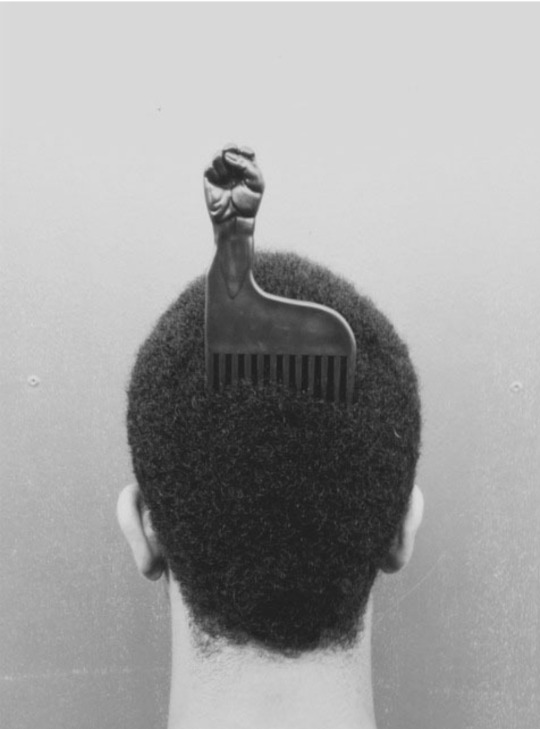
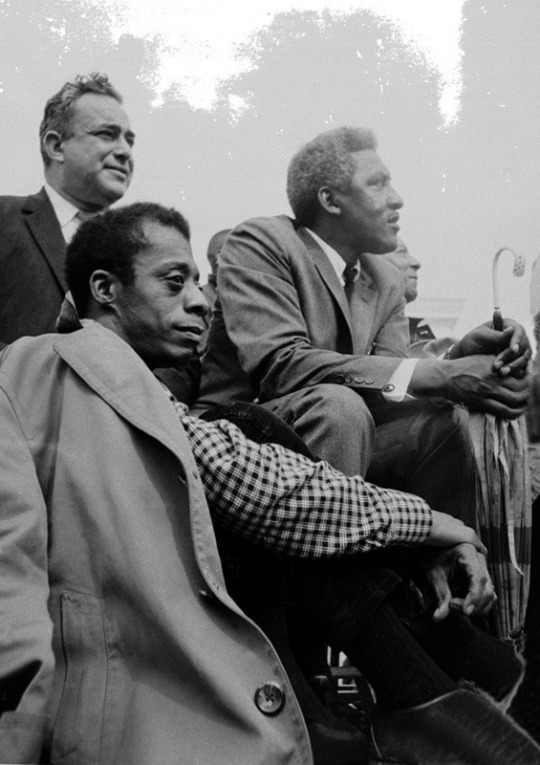



Civil Rights For All
All Black Lives Matter
#my collage#black gay men#gay#african american#lgbt#achillean#black gay magic#blackboyjoy#gay pride#lgbt pride#black pride#black men#civil rights#civil unrest#american dream#Americana#dark academia#black academia#black history#history#american history#bayard rustin#james baldwin#black gay
640 notes
·
View notes
Text
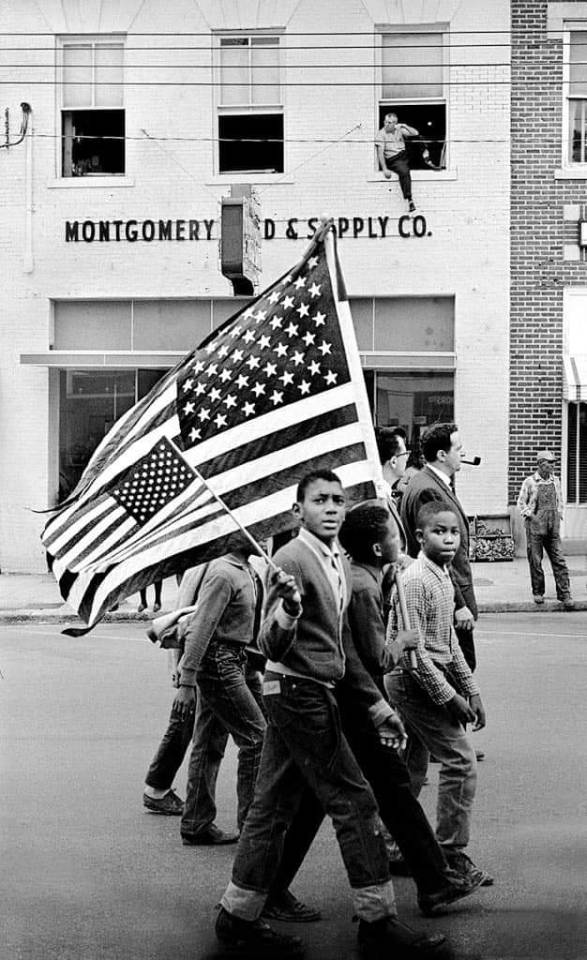
#african americans rights#slavery#civil war#black lives matter#underground railroad#civil rights movement#fourth of july#african american history
128 notes
·
View notes
Text









who said that black girls can't do shit?
#rory gilmore aesthetic#mood#moodboard#aesthetic#dark academia#academia#black girls#black girl rights#classic academia#romantic academia#study inspo#study motivation#black rights#poetry#books#reading#library#bookstore#read#study#studying#african americans#rights#beauty
141 notes
·
View notes
Text
Kremy celebrated Kwanzaa when he was little with his family because I like pushing my southern African American culture on my favorite character.
Yapping below, read at your own risk
I can imagine him and his brother lighting the candles with his mom. Two ears of corn that represents the children in the family. Gathering around the table as they discuss the principle of the day and maybe doing some activities for it.
On the equivalent of December 31st Kremy cooks black eyed peas with his Memaw for good luck into the next year.
After Kremy left he became distant with the celebration especially with it being not popular in Agwe as well as no family to celebrate with.
When Kremy became more comfortable with his past and considered the whole gang as family they started celebrating together. Kremy explained the 7 principles, placed an ear of corn to represent Hootsie, and he cooks black eyed peas for everyone to eat.
Is this anything at all?
#kremy lecroux#once upon a witchlight#ouaw#we all agree Kremy is African American#right chat?#I would go into more detail but I’d be too confusing to people who don’t celebrate it (most people)
88 notes
·
View notes
Text
#project 2025#agenda 47#trumps project 2025#civil rights#mlk#politics#donald trump#2024 presidential election#blacklivesmatter#black lives matter#black liberation#vote blue#vote kamala#kamala 2024#kamala harris#kamala for president#democrats#republicans#black people#african american#racism#racial issues#right wing extremism#trump 2024#black women#racial injustice#fuck trump
102 notes
·
View notes
Text

This makes Tiana the Princess of Creole Cuisine!
🍽️👩🏾🦱👑
#history#princess tiana#leah chase#juneteenth#new orleans#african american history#disney#princess and the frog#united states#1950s#womens history#1960s#disney princess#animation#creole#soft girl#girl power#tiana's bayou adventure#disney history#black femininity#american history#civil rights#dooky chase#princesscore#black girl magic#historical figures#food history#landmark#nickys facts
135 notes
·
View notes
Text

King's work is still inspiring people today. He dreamed of a fair world. His legacy keeps guiding those who fight for equality and justice. In honor of M.L.K. click the link to learn about his impact on the world from youth to adulthood!
bit.ly/MARTINLUTHERKINGJR
#civil rights#martin luther king day#martin luther king jr#martin luther king quotes#washington dc#washington monument#african american#african american history#justice#inspiration
36 notes
·
View notes
Text

Monique Thomas (deceased)
Gender: Transgender woman
Sexuality: N/A
DOB: 30 March 1963
RIP: 11 September 1998
Ethnicity: African American
Occupation: N/A
Note: Her death, along with the murders of other Black transgender women in Boston, led to the creation of International Transgender Day of Remembrance.
#Monique Thomas#International Transgender Day of Remembrance#lgbt#lgbt history#trans history#lgbt rights#trans rights#lgbtq#transgender#trans woman#1963#rip#historical#black#african american#poc
112 notes
·
View notes